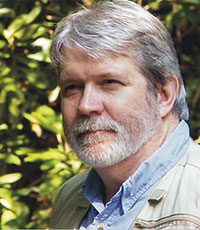By David A. Ramsey
The last couple of years have seen not one, but two destructive pandemics spread like wildfire across the U.S. One, of course, was caused by the Coronavirus, the other has been what I call, the pandemic of denial. However, the spread of COVID-19 has been trending downward while, incredibly and unfortunately, the spread of denial, about a variety of things for which evidence and facts speak for themselves, seems to be on the increase. And to add to the madness, there appear to be plenty of folks around who are in denial about the denial.
From the standpoint of conserving and protecting our great outdoors and the vital natural resources on which it depends, little is more threatening to us than the denial of human-caused climate change. This global disaster-in-the-making threatens much more than the cherished, outdoor lifestyles of people like you and me. It’s clear now that life itself, in all its forms, is at serious risk. And while we could talk about that ‘til the cows come home, this is a fishing magazine, so I’ll stick to fishing related matters.
Not so long ago, only five or six years maybe, too many of us still spoke of major negative impacts of climate change on fish and other aquatic species as distant possible events. Well…breaking news: those impacts are no longer distant, nor are they just possible—they are real, and they are here. And the consensus among the credible scientists of the world is virtually 100%: the outlook for virtually all fresh and saltwater species is grim.
One of the most concerning things happening now is the rapid disappearance of species, and particularly for us fishermen, the disturbing loss of so many amphibians and insects. As an avid fly fisher, I can tell you this is not just concerning to me—it’s traumatic. The loss of many of the countless aquatic insects and small creatures that make up the diet of trout and other species we longrodders pursue will be devastating on a whole bunch of levels. And I doubt there’s a serious bass fisherman alive that doesn’t have a bait box, or six, full of plastic lizards, worms and frogs, because that’s what bass like, right? The big picture gut check? It is now estimated that we will lose half of all species, including most frogs and lizards, before the end of this century.
The reasons for the die off of so many species are several and more complex than I have space to expound here. But the biggest reason is pretty straightforward: the accelerating increase in average temperatures of air and water is impacting vital habitats. For example, we trout bums know that the fish we love to pursue only can live in cold water, preferably with a temperature range between about 40°–65°F. When the upper end of that range is consistently higher, the fish are stressed and have difficulty breathing and feeding. They die. Add to this the disappearance of the aquatic insects and animals on which they feed, and you have a failed fishery, plain and simple.
Take this general increased warming scenario and apply it to almost any fishery (or other wildlife habitat, for that matter) and you begin to see that big picture more clearly. Of course, I readily admit it’s something of a fool’s errand to broach such a massive, complicated and critically important subject as climate change in such a limited space as a small magazine column. But then, my real goal here is not to delve into the science and statistics and politics of the issue, but to simply advocate for reality and point up the increasing dangers of denial.
As I see things, we all have a couple of big choices to consider: one, we find the courage and common sense to look hard at the facts and massive evidence at hand that show us, plainly and clearly, that we face a looming catastrophe, then hitch up our britches and do something about it; or two, we ignore the science, ridicule a hell of a lot of people that know a hell of a lot more than we do and then suffer (and still deny?) our way through a global environmental collapse. As for me, I’ll pass on the sufferin’, if I can. I’d rather go fishin’.
